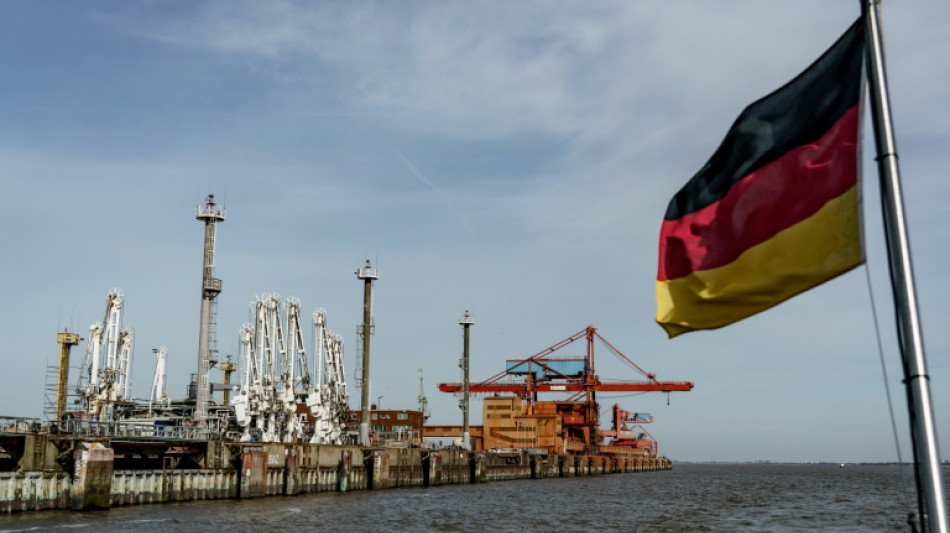
-
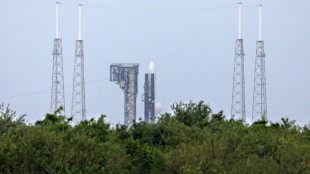 Amazon launches first Starlink-rival internet satellites
Amazon launches first Starlink-rival internet satellites
-
US lost seven multi-million-dollar drones in Yemen area since March

-
 Bucks blow as Lillard suffers torn Achilles: team
Bucks blow as Lillard suffers torn Achilles: team
-
Putin orders three-day truce amid new US warnings
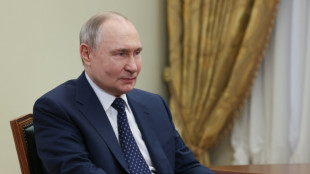
-
 Real Madrid's Ancelotti agrees Brazil deal - reports
Real Madrid's Ancelotti agrees Brazil deal - reports
-
ChatGPT adds shopping help, intensifying Google rivalry

-
 Global stocks mixed amid trade hopes as markets await tech earnings
Global stocks mixed amid trade hopes as markets await tech earnings
-
Commanders heading back to D.C. after inking $3.7 bln stadium deal
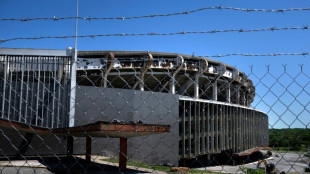
-
 US warplane falls off aircraft carrier into Red Sea
US warplane falls off aircraft carrier into Red Sea
-
Feisty Arteta urges Arsenal fans to 'bring boots' to PSG Champions League clash

-
 Bucks blow as Lillard suffers ruptured Achilles: reports
Bucks blow as Lillard suffers ruptured Achilles: reports
-
No power, no phone, no transport -- Spain in a panic
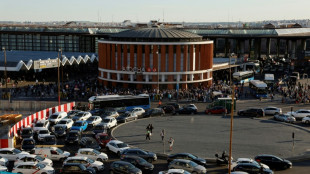
-
 US warplane went overboard into Red Sea: Navy
US warplane went overboard into Red Sea: Navy
-
'Like a dream' as IPL's 14-year-old Suryavanshi becomes youngest to hit T20 ton

-
 Luis Enrique says PSG have improved since October Arsenal loss
Luis Enrique says PSG have improved since October Arsenal loss
-
UN food, refugee agencies warn of huge cuts after funding losses

-
 Trump trade war dominates BRICS meeting in Brazil
Trump trade war dominates BRICS meeting in Brazil
-
Rashford expected to miss rest of Aston Villa season

-
 IPL's 14-year-old Suryavanshi youngest to hit T20 ton as Rajasthan rule
IPL's 14-year-old Suryavanshi youngest to hit T20 ton as Rajasthan rule
-
Halle Berry, Jeremy Strong to join Cannes film festival jury: organisers

-
 Klopp congratulates Liverpool on Premier League triumph
Klopp congratulates Liverpool on Premier League triumph
-
Violence-weary Trinidadians vote in general election

-
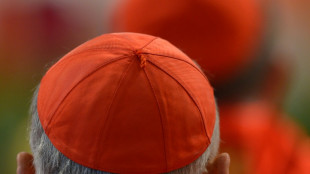 Abuse scandal in focus in search for new pope
Abuse scandal in focus in search for new pope
-
Prince William and Kate mark wedding anniversary in Scotland

-
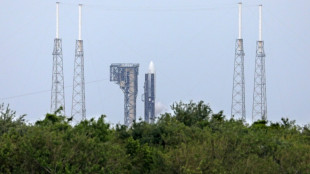 Amazon set for launch of Starlink-rival satellites
Amazon set for launch of Starlink-rival satellites
-
London mayor Sadiq Khan targets Olympic history for city
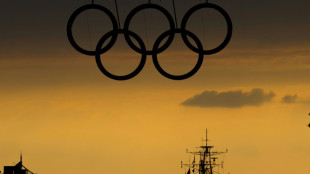
-
 Stock markets diverge amid trade hopes, ahead of earnings
Stock markets diverge amid trade hopes, ahead of earnings
-
Canada votes as Trump renews US takeover push
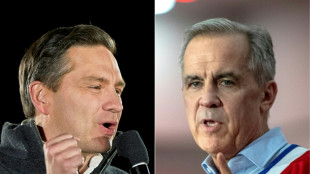
-
 Massive blackout hits all of Spain and Portugal
Massive blackout hits all of Spain and Portugal
-
Conclave starts May 7, cardinals say new pope must tackle abuse

-
 BRICS ministers meet in Brazil over Trump trade policies
BRICS ministers meet in Brazil over Trump trade policies
-
Trump escalates immigration crackdown to mark 100 days
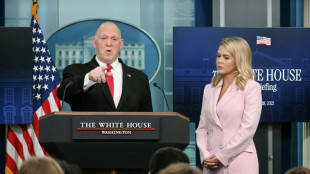
-
 Outkast, White Stripes, Cyndi Lauper among Rock Hall inductees
Outkast, White Stripes, Cyndi Lauper among Rock Hall inductees
-
Putin orders three-day truce in May but Ukraine asks 'Why wait?'
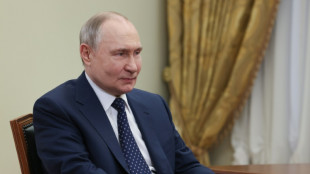
-
 Eubank Jr discharged from hospital following boxing grudge match
Eubank Jr discharged from hospital following boxing grudge match
-
China deploys army of fake NGOs at UN to intimidate critics: media probe
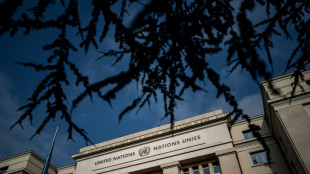
-
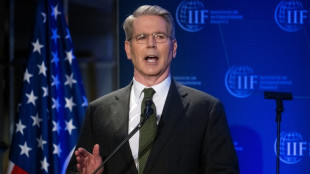 Empty shelves? US Treasury secretary not concerned 'at present'
Empty shelves? US Treasury secretary not concerned 'at present'
-
Slot told Liverpool they could win the league at season start: Konate
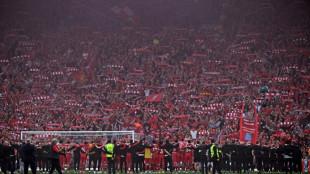
-
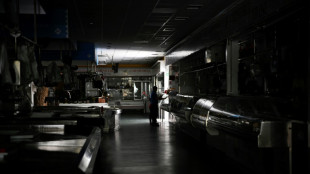 Spain brought to a halt by huge blackout
Spain brought to a halt by huge blackout
-
Stock markets mostly higher amid trade talk hopes

-
 Conclave starts May 7, with cardinals saying new pope must tackle abuse
Conclave starts May 7, with cardinals saying new pope must tackle abuse
-
Massive blackout hits Spain and Portugal

-
 Ruediger 'must show respect to others' says Germany boss Voeller
Ruediger 'must show respect to others' says Germany boss Voeller
-
As Canada votes, Trump pushes US takeover plan
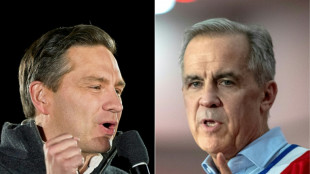
-
 Ten on trial in Paris over 2016 gunpoint robbery of Kim Kardashian
Ten on trial in Paris over 2016 gunpoint robbery of Kim Kardashian
-
African players in Europe: Salah scores, takes selfies as Reds seal title

-
 Bangladesh spinner Taijul's 5 wickets trigger Zimbabwe collapse in 2nd Test
Bangladesh spinner Taijul's 5 wickets trigger Zimbabwe collapse in 2nd Test
-
French mosque murder suspect, 21, surrenders in Italy

-
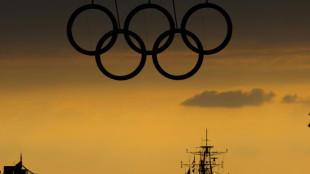 Mayor Khan keen for London to make Olympics history
Mayor Khan keen for London to make Olympics history
-
Iranian president visits Azerbaijan as ties warm
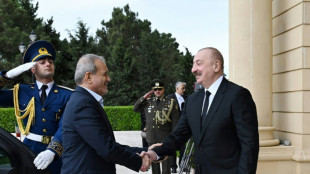

Russian gas stop promises 'sharp recession' for Germany
An immediate end to Russian energy imports would send Germany into "sharp recession" next year, the country's leading economic institutes said in a forecast published Wednesday.
Persistently higher energy prices and geopolitical risks herald the beginning of a new era for Europe's industrial powerhouse, they warned, one which not every company will survive.
"Not all business models that were profitable in Germany in the past will have a future," Stefan Kooths, vice-president of the IfW Kiel institute, said at a Berlin press conference.
The government must keep this in mind when it considers support measures for struggling firms, he added.
Germany, which is highly dependent on Russian gas for its energy needs, has so far resisted calls for a European boycott in response to the war in Ukraine.
Closing the taps in "mid-April" this year would limit growth to 1.9 percent in 2022 and push Germany into a recession in 2023, causing the economy to shrink by 2.2 percent, according to the forecast.
The impact of a boycott would "not be overcome" over the next two years, the institutes (DIW, Ifo, IfW Kiel, IWH and RWI) said in a joint statement.
Europe's largest economy could yet suffer a "set back" at the end of 2023 into 2024, as demand for energy rises in the European winter, before "gradually" returning to growth.
Before Moscow began its war in Ukraine, a third of Germany's oil imports, 45 percent of its coal purchases and 55 percent of gas imports came via pipelines from Russia.
The country has set about weaning itself off Russia energy imports, accelerating investments in renewables and building LNG (liquefied natural gas) terminals on the North Sea coast to import gas from further afield, though they would take years to come online.
Economy Minister Robert Habeck said at the end of March that it would likely take until mid-2024 for Europe's largest economy to wean itself off Russian deliveries.
- Emergency plan -
German officials have already triggered an emergency plan in anticipation of a gas shortage, which could result in gas rationing among households and businesses.
The government has also prepared legislation that would allow it to expropriate gas suppliers "to assure security of supply", according to a draft seen by AFP.
The law would make it difficult to close storage facilities without government approval as well.
Last week, Berlin took temporary control of Russian gas giant Gazprom's German subsidiary, which holds several key pieces of infrastructure, after its parent company unexpectedly withdrew.
European partners, who have already agreed to stop buying coal from Russia, are currently in discussions about further sanctions against Moscow.
While a gas boycott with its serious economic consequences is seen as a last resort, the next target of EU sanctions could well be Russian oil.
- 'Difficult waters' -
Even without a gas boycott, the war in Ukraine is "slowing down" Germany's recovery from the economic shock of the coronavirus pandemic, the institutes said.
The German economy was "navigating difficult waters" as the war and China's zero-Covid policy added to supply chain disruptions that are hampering industry.
The group slashed their forecast for growth in 2022 to 2.7 percent, from their previous estimate of 4.8 percent made in October last year.
At the same time, they raised their forecast for growth in 2023 to 3.1 percent from 1.9 percent, in a scenario where energy deliveries continue.
Inflation, which has hit new highs as the price for energy has soared, would come out at 6.1 percent in 2022, before falling back to 2.8 percent in 2023, the think-tanks said.
Shutting off supplies from Russia would push the price even higher, taking inflation to 7.3 percent in 2022 and keeping it at five percent in 2023.
Y.Nakamura--AMWN